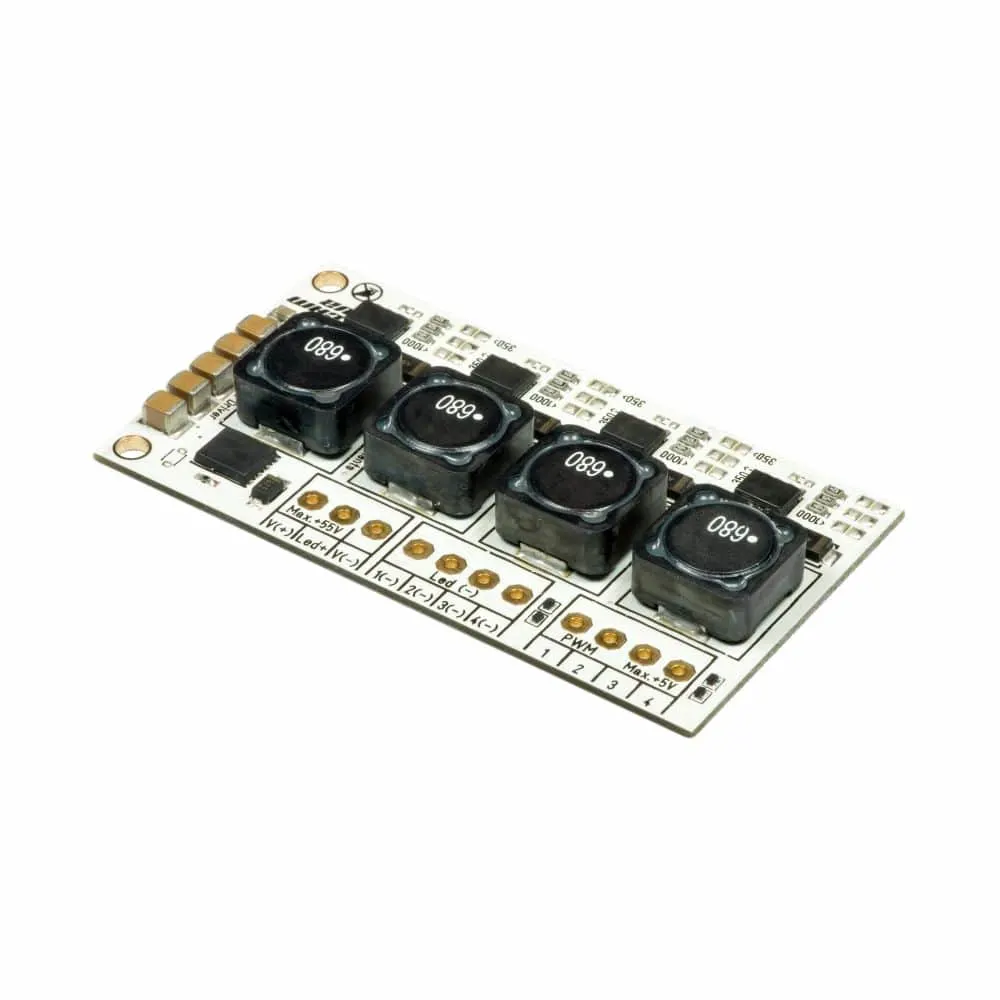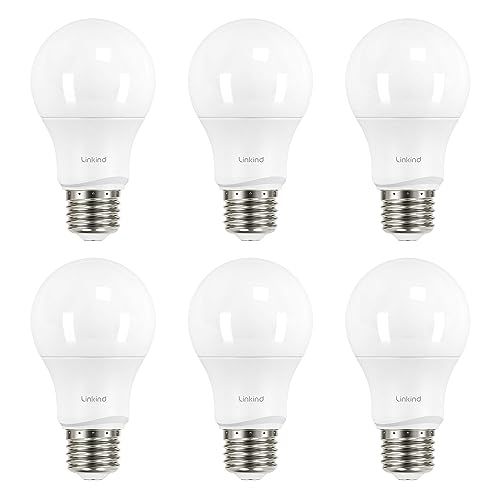Dimmer-controlled sockets allow you to determine how much electricity is circuited throughout the light bulbs, thus controlling the amount of light emitted. Being able to vary the brightness of the lighting in certain rooms in your house can create the perfect atmosphere and can be the difference between hurting your eyes as soon as you enter a room, or setting the mood for a romantic date night in.
Dimmers now come in a variety of options, with some allowing you to control the brightness from your smartphone or using your voice. However, there comes the question as to what bulbs can be used in certain dimmer-controlled sockets. This article is your one-stop guide to choosing the right bulb for your socket.

Most incandescent/halogen bulbs will work with any dimmer socket, including LED dimmer sockets, but the wattage must be matched between the bulb and the dimmer socket. Regular LED bulbs should not be used in a dimmer controlled socket.
LED Bulbs
LED bulbs are not only energy conservers, but are plentiful on the market and many are compatible with a variety of dimmer-controlled sockets. However, only specific dimmable LEDs can be used in dimmers.
Energy Star LEDs or Phillips range of bulbs are a great option for dimmable LEDs. It is very easy to determine which LED bulb is compatible with which dimmer—simply look at the packaging as a guide or search the brand’s website to identify the appropriate socket.
Related article: Do Philips Hue Bulbs Work in Ceiling Fans?
What Happens to a Normal LED Bulb in a Dimmer Socket?
The answer to this question is definitely something you want to find out from a blog post and not from personal experience!
LEDs have low resistance, meaning that as soon as the light is switched on, a ton of electrical current gets coursed through. Now if you put a normal LED bulb in a dimmer socket, this could result in either the LED just not dimming as you would expect, flickering, or more serious damage could occur.
How Are Dimmable LEDs Different to Regular LEDs?
The differences between dimmable and regular LEDs lie in their circuitry. LEDs have a driver that enables them to convert a high voltage current to a low voltage current.
Dimmable LEDs’ circuitry allows them to respond to changing amounts of electricity, which enables them to dim. They also use less electricity than regular LEDs
Dimmable led bulbs used to be very expensive, but now their price has dropped dramatically. All you have to do is decide how much light you need, find what socket you use and place an order on Amazon to have it delivered to your doorstep the very next day. I suggest buying a 6-pack; This way you will have spares whenever one breaks.
- ✔ GREAT VALUE & EXCELLENT COLOR: This value pack comes with 6 bulbs, each with 800 lumens of light output. With CRI80+, they provide you with the vivid color and close-to-sunlight quality light....
- ✔MONEY SAVING & LONG LASTING: Linkind A19 LED light bulbs can last for at least 13 years based on 3hrs/day of use. It provides up to 85% energy saving by replacing 60W with 9.5W. Replace your old...
- ✔ SMOOTH & DIMMABLE: Compatible with most LED dimmers to have smooth dimming control with the lowest brightness at 10%. 2700K soft and warm white. Dim to create your favorite brightness to control...
- ✔WIDE APPLICATION: Turns on instantly, no warm up time, 2700K, 120V, 230° beam angle, perfectly and widely used in the home indoor lighting, hotel, meeting room, offices, hospital, schools,...
Last update on 2024-03-28 / Affiliate links / Images from Amazon Product Advertising API
Regular LEDs do not have this circuitry. Instead, they are wired to be either completely on or completely off—no in between. This circuitry is what causes them to become damaged if they try to be dimmed.
Incandescent/Halogen Light Bulbs
An incandescent bulb is an electric light that has a wire filament. When the filament is heated by the electric current, the light glows.
These light bulbs could be your best choice as incandescent/halogen bulbs are known to work with any dimmer socket. All you need to do is to make sure that the voltage and wattage between the light bulb and the socket match.
Using these types of bulbs will also conserve the energy used in your home.
Indicators That the Bulb Is Not Matched
If the voltage and wattage of the bulb are too high for the socket, the bulb may burn out and melt the insulation of the wiring. You also run the risk of damaging your light fixture and dimmer socket.
Here are some things to look out for which would indicate if there is an incompatibility between the bulb and socket’s voltages:
- When dimming the light bulbs lower, the light turns off or cuts out before you can reduce to the dimmest setting.
- When increasing the brightness of your lights, the lighting becomes much brighter much sooner than it should.
- Your lights do not adjust to lower or higher brightness when adjusting the dimmer.

Differences Between Incandescent and LED Dimmers
| Incandescent Dimmers | LED Dimmers |
| Simple circuitry | Complex Circuitry |
| Lights are dimmed by a reduction of voltage traveling to the bulbs. An adjustable resistor (the switch) controls the voltage going to the bulb. | Lights are dimmed by sudden cuts and surges of power reaching the bulb. The time between cuts determines how bright/dim the light will be. The less time between the cuts = the brighter the light will shine |
| When dimmed, the lights will glow a more orange/yellow-tinged shade | When dimmed, the lights remain a consistent white shade |
| More affordable (About $1 per bulb) | A lot more expensive (About $5 per bulb) |
Non-Dimmable Incandescent Bulbs in LED Dimmers
LED, or ‘training-edge’ dimmers, are specifically for LED light bulbs, due to their specific characteristics that make them a well-suited match.
The LED dimmers have a much lower wattage than incandescent dimmers, which makes the lower watt LED bulb a better fit.
However, you CAN still use a normal incandescent bulb in these types of dimmers as long as the wattage of the bulb matches the wattage of the dimmer.
Non-Dimmable LED Bulbs in Incandescent Dimmers
Incandescent dimmers are synonymous with ‘leading-edge dimmers’ which have a much higher wattage range.
Non-dimmable LED bulbs are not best suited for these dimmers, as you should not be putting a non-dimming bulb in a dimmer, as there could be serious damage to both the light and the circuitry.
Sometimes, 3-lamps can be used as alternatives to dimmer switch-controlled lighting, however, a regular bulb in a 3-way lamp and a dimmable bulb in a 3-way lamp will only produce one brightness level. You need a 3-way bulb specifically.
Related article: Are Ceiling Fan Lights Dimmable?
Related article: Can You Put a Regular Light Bulb in a Bathroom Heat Lamp?
Sources
https://www.ragsdaleair.com/news/which-light-bulb-is-best-for-dimmer-switches
https://www.lighting.philips.co.za/consumer/led-lights/dimmable-led
https://www.electricalexperts.com/blog/2017/march/electrician-explains-what-happens-when-using-wro/
https://blog.1000bulbs.com/home/how-to-tell-if-your-dimmer-switch-is-compatible-with-your-bulbs
https://en.wikipedia.org/wiki/Incandescent_light_bulb
https://finolex.com/why-should-you-never-use-non-dimmable-light-bulbs-with-dimmer-switches/
https://energytoday.biz/blog/can-you-put-led-lights-on-a-dimmer
https://lamphq.com/dimmable-vs-non-dimmable/
https://www.diysmarthomehub.com/led-vs-incandescent-dimmer/
https://learn.eartheasy.com/guides/led-light-bulbs-comparison-charts/
https://blog.lightbulbs-direct.com/dimming-for-dummies/#Can%20I%20dim%20any%20LED%20light%20bulb?

